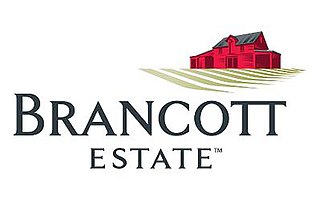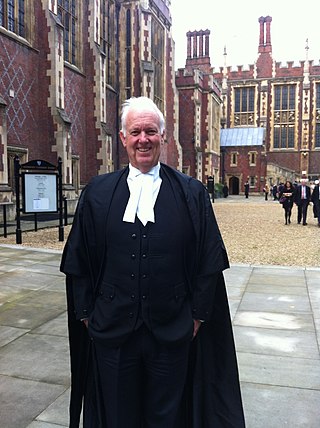Related Research Articles

Waiheke Island is the second-largest island in the Hauraki Gulf of New Zealand. Its ferry terminal in Matiatia Bay at the western end is 21.5 km (13.4 mi) from the central-city terminal in Auckland.
Sir Ronald Keith Davison was a New Zealand lawyer and jurist. He served as the tenth Chief Justice of New Zealand from 1978 to 1989,

John Leslie Toohey, AC, QC was an Australian judge who was a Justice of the High Court of Australia from 1987 to 1998.

Sir David Stuart Beattie, was an Australian-born New Zealand judge who served as the 14th governor-general of New Zealand, from 1980 to 1985. During the 1984 constitutional crisis, Beattie was nearly forced to dismiss the sitting prime minister, Robert Muldoon.
David MacKellar Richwhite is a New Zealand investment banker and was a partner in Fay, Richwhite & Company with Sir Michael Fay.

New Zealand wine is produced in several of its distinct winegrowing regions. As an island country in the South Pacific Ocean, New Zealand has a largely maritime climate, although its elongated geography produces considerable regional variation from north to south. Like many other New World wines, New Zealand wine is usually produced and labelled as single varietal wines, or if blended, winemakers list the varietal components on the label. New Zealand is best known for its Marlborough Sauvignon Blanc, and more recently its dense, concentrated Pinot Noir from Marlborough, Martinborough and Central Otago.

The Winebox Inquiry was an inquiry undertaken in New Zealand to investigate claims of corruption and incompetence in the Serious Fraud Office (SFO) and Inland Revenue Department (IRD).

Brancott Estate is the brand adopted since 2010 by Pernod Ricard for New Zealand's largest wine producer, formerly Montana Wines, which now operates as the New Zealand division of Pernod Ricard Winemakers. The name comes from its Brancott winery in Blenheim, and was chosen to reduce confusion in the United States market with wines from the state of Montana.
The Henry family migrated to New Zealand from Scotland in the 1870s. In New Zealand they played a major role in forestry, industry, law and philanthropy.
Sir Ivor Lloyd Morgan Richardson was an eminent New Zealand and Commonwealth jurist and legal writer and a member of the Judicial Committee of the Privy Council.
Brian Phillip Henry is a New Zealand barrister and a descendant of the industrialist Henry family.
Garth Alexander Harris was a New Zealand academic tax lawyer. He was one of New Zealand's leading tax scholars and the country's foremost writer and thinker on international taxation.
Sir Alexander Kingcome Turner was an Auckland-born New Zealand lawyer and judge.

Sir Robert Stanley Chambers was a judge of the Supreme Court of New Zealand.

David Graham Russell, is an Australian barrister who specialises in international tax law.

Dame Lowell Patria Goddard, is a former New Zealand High Court judge, from 1995 to 2015. She is thought to be the first person of Māori ancestry to have been appointed to the High Court. In 1988, she was one of the first two women to be appointed Queen's Counsel in New Zealand and in 1989 became the first woman to hold a Crown warrant. In 1992, she became Deputy Solicitor-General for New Zealand. Between 2007 and 2012 she chaired New Zealand's Independent Police Conduct Authority (IPCA). In 2010 she was elected as an independent expert to the United Nations Subcommittee on the Prevention of Torture (SPT) and served in that capacity until 2016. From February 2015 until August 2016, she chaired the Independent Inquiry into Child Sexual Abuse in England and Wales.
Colin Maurice Nicholson was a New Zealand lawyer and jurist. He served as a judge of the High Court of New Zealand from 1998 until 2009. He also served as a justice of the High Court of the Cook Islands from his appointment in April 2005 until his retirement in May 2012. In 2011, Nicholson became the first judge to prosecute citizens of the Cook Islands for counterfeit DVD piracy.

Deborah Anne, Lady Chambers is a New Zealand King's Counsel specialising in relationship property and trusts law. She was married to the New Zealand Supreme Court judge, Sir Robert Chambers from 2004 until his death in 2013.
Jennifer Cooper is a corporate lawyer and King's Counsel from New Zealand.

Sir Richard Ian Barker was a New Zealand jurist. His legal career spanned over six decades. He was a lawyer for 20 years, followed by 20 years as a judge at the High Court, before he worked for another two decades as a mediator and arbitrator. Barker was involved in the law reform in the Cook Islands.
References
- 1 2 3 4 Anthony Molloy, Thirty Pieces of Silver, Howling at the Moon, Auckland, pp. vii and viii.
- ↑ Shortland Chambers, Anthony Molloy QC Archived 16 September 2011 at the Wayback Machine
- ↑ for example: Tony Molloy QC, "Time and time again, Courts labelled Winebox deal fraud", The New Zealand Herald , Monday, 21 July 2008.
- ↑ Anthony Grant, "How others see us: A need for judicial specialization" (retrieved 30 August 2015)
- ↑ James Farmer QC, Commentary: The High Court in Review, 6 October 2012 (Retrieved 31 August 2015)
- ↑ Taylor, Phil (5 May 2012). "Justice in the firing line". The New Zealand Herald.
- ↑ O'Neill, Rob (22 May 2012). "Law System a 'laughing stock'". Sunday Star-Times.
- ↑ "QC spat gets Ugly". Scoop News (Lawfuel). 6 September 2012.
- ↑ St Nesbit Winery